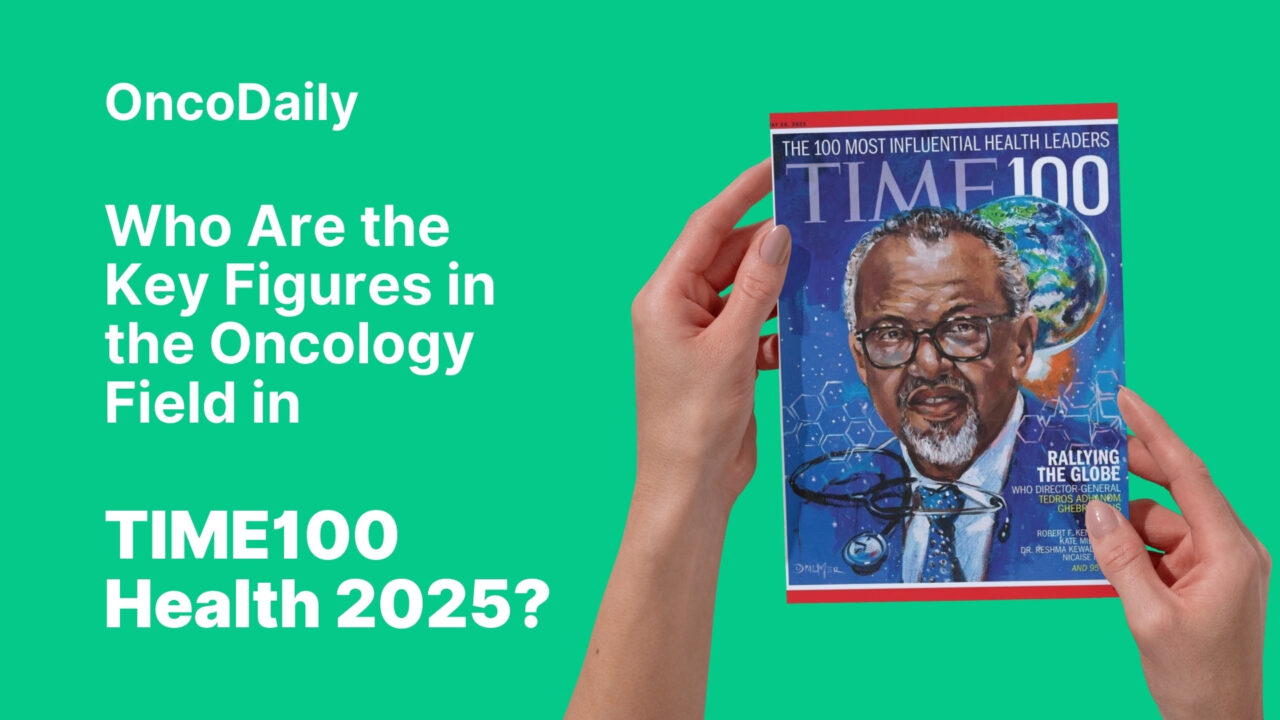
Who From Oncology is Featured in TIME100 Health 2025?
The TIME100 Health 2025 is the second annual list published by TIME magazine that recognizes the 100 most influential individuals shaping the future of global health. Released on May 8, 2025, the list features a diverse group of leaders including scientists, doctors, advocates, educators, policymakers, and innovators who are driving advancements in healthcare, shaping policy, and transforming lives worldwide. Notable figures on the list include Princess of Wales Kate Middleton, WHO Director-General Tedros Adhanom Ghebreyesus, CEOs of major pharmaceutical companies, athletes, actors, and health advocates.
The list highlights the broad impact of these individuals across various sectors in health during a pivotal time in global health history. The full list and detailed profiles are available on TIME’s website and in the May 26, 2025 print issue of TIME magazine.In this article, we focus on the oncology professionals featured in TIME100 Health 2025, who are playing a key role in advancing cancer treatment, research, and patient care.
Dr. Andrea Cercek
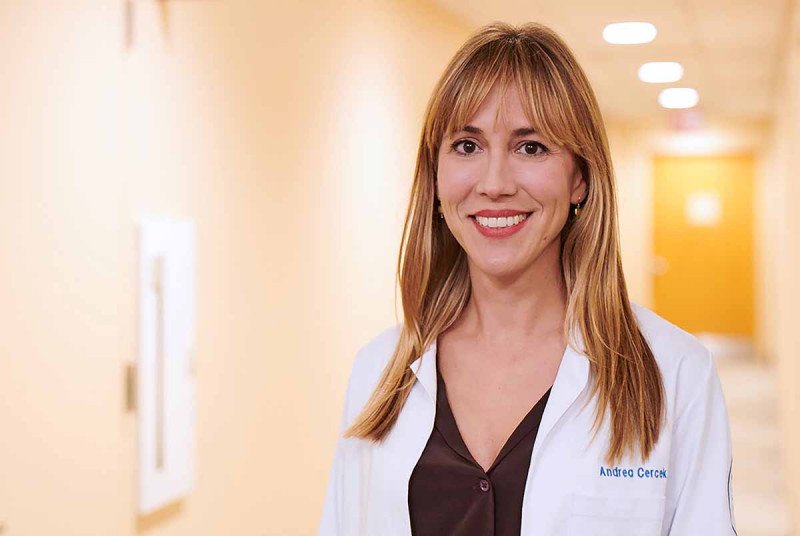
Andrea Cercek is a leading gastrointestinal medical oncologist at Memorial Sloan Kettering Cancer Center (MSKCC), specializing in colorectal and other gastrointestinal cancers. She is the Section Head of Colorectal Cancer and co-founder and co-director of MSK’s Center for Young Onset Colorectal and Gastrointestinal Cancer, the first clinic worldwide dedicated to patients under 50 with these cancers.
Dr. Cercek’s research focuses on novel biomarker-driven therapies, particularly immunotherapy using checkpoint inhibitors like dostarlimab. Her groundbreaking clinical trials have shown remarkable results, especially in mismatch repair-deficient (dMMR) rectal cancer, where patients treated with dostarlimab achieved complete remission without surgery or chemotherapy. This approach is now being expanded to other cancer types such as colon, esophageal, stomach, urothelial, and endometrial cancers, with encouraging response rates.
She emphasizes improving quality of life by avoiding invasive treatments and is actively involved in designing multidisciplinary clinical trials to advance cancer treatment and survivorship care. Her work has influenced treatment guidelines, with the National Comprehensive Cancer Network including dostarlimab for certain colorectal cancers, and the FDA granting fast track designation to the drug.
Dr. Cercek is also a member of several professional societies, including ASCO, ESMO, and AACR, and is recognized as one of TIME’s 2025 most influential health leaders.
Dr. Vinod Balachandran
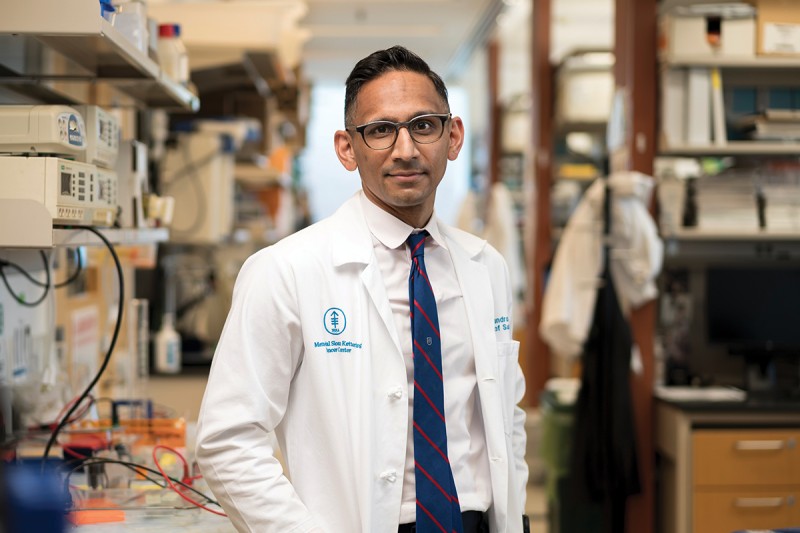
Dr. Vinod Balachandran is a surgical oncologist and scientist at Memorial Sloan Kettering Cancer Center (MSKCC) specializing in pancreatic cancer. He leads pioneering research developing personalized mRNA vaccines designed to stimulate the immune system to recognize and attack pancreatic cancer cells by targeting tumor-specific neoantigens unique to each patient’s tumor. In a groundbreaking phase 1 clinical trial completed in January 2025, his team treated 16 patients with this vaccine (called autogene cevumeran), and eight showed strong immune responses; six of these remained cancer-free for over three years post-treatment. This vaccine generated a powerful, durable immune response, offering new hope against pancreatic cancer-a disease with very low survival rates and limited effective treatments.
Dr. Balachandran’s research builds on his discovery that long-term pancreatic cancer survivors have tumors enriched with immune cells, particularly innate lymphoid cells (ILCs), which help control tumors by recruiting other immune cells. His lab focuses on activating these ILCs and other immune components to boost anti-cancer immunity. He also studies antibody-drug conjugates (ADCs) and cancer vaccines as emerging immunotherapy strategies.
His work is highly innovative and considered a potential game-changer for pancreatic cancer treatment, aiming to transform a traditionally refractory cancer into one controllable by the immune system. Dr. Balachandran has received prestigious awards such as the Pershing Square Sohn Cancer Research Prize and continues to lead clinical trials evaluating cancer vaccines and immunotherapies.
Dr. Karen E. Knudsen
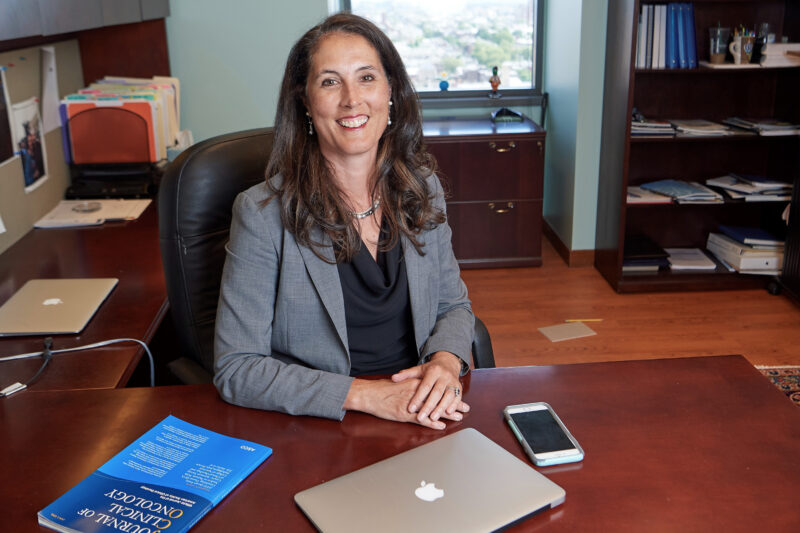
Dr. Karen E. Knudsen is a distinguished oncology leader and cancer researcher known for her significant contributions to cancer care, research, and advocacy. She served as the CEO of the American Cancer Society (ACS) and its advocacy arm, the American Cancer Society Cancer Action Network (ACS CAN), where she transformed the organizations by expanding research funding, enhancing patient support services, and promoting health equity. Under her leadership, ACS increased its annual revenue by over 30% and boosted cancer research funding to more than $465 million.
Before her tenure at ACS, Dr. Knudsen was Executive Vice President of Oncology Services at Jefferson Health and directed the Sidney Kimmel Comprehensive Cancer Center, an NCI-designated center. She has an extensive academic background, having chaired the Department of Cancer Biology at Thomas Jefferson University, where she advanced prostate cancer research and clinical trial access.
Dr. Knudsen is widely respected for her research on prostate cancer biology and her efforts to improve clinical trial participation, especially in community settings. She has published over 180 peer-reviewed articles and is an influential voice in oncology policy and innovation.
Her work emphasizes expanding access to care, advancing health equity, and improving patient outcomes. Recognized with numerous awards, including the ASCO Allen Lichter Visionary Leader Award, Dr. Knudsen continues to shape the future of cancer research and patient advocacy globally.
Dr. Dawn L. Hershman
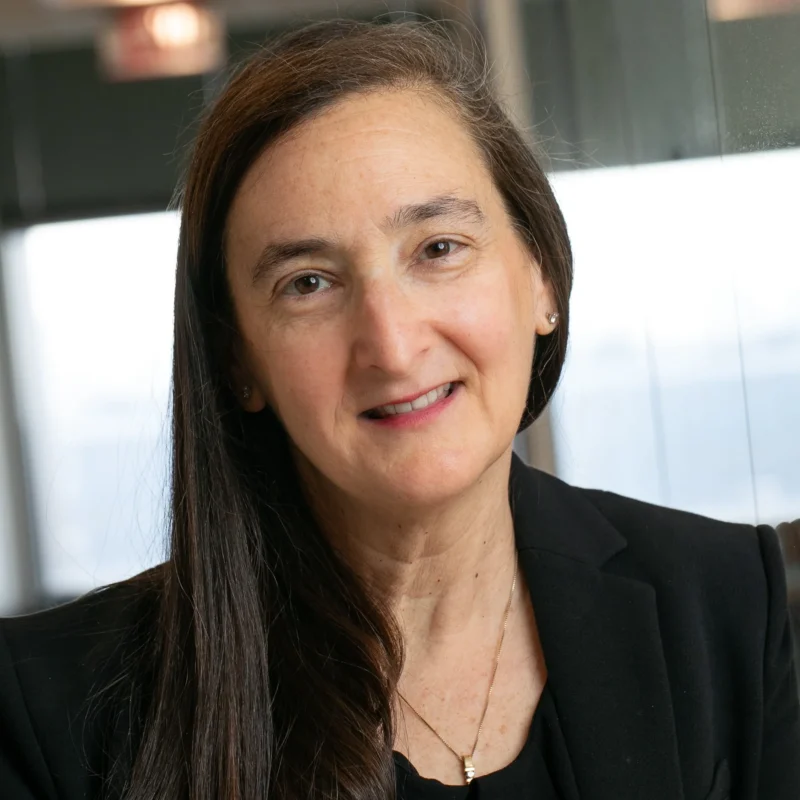
Dr. Dawn L. Hershman is a leading breast oncologist and researcher, serving as the American Cancer Society Professor of Medicine and Epidemiology at Columbia University. She directs the Breast Oncology program and co-leads the Cancer Population Science program at the Herbert Irving Comprehensive Cancer Center. Dr. Hershman earned her medical degree from Albert Einstein College of Medicine and completed her internal medicine and oncology training at Columbia University, where she also obtained a Master’s degree in Biostatistics.
Her nationally recognized expertise focuses on breast cancer treatment, prevention, and survivorship. Dr. Hershman has pioneered research on improving cancer care delivery, reducing disparities, and enhancing quality of life for breast cancer survivors. She has identified factors contributing to suboptimal therapy adherence, including financial barriers like high co-payments, and developed interventions to improve treatment compliance and manage therapy side effects such as chemotherapy and hormone therapy toxicities.
Dr. Hershman has published over 450 scientific articles and received numerous honors, including the American Society of Clinical Oncology’s Advanced Clinical Research Award in Breast Cancer, the Avon Foundation’s Advanced Medical Achievement Award, and the Giants in Cancer Care Award. She holds leadership roles in national oncology organizations, including vice chair of the SWOG Cancer Research Network and editorial positions with major oncology journals. Her work has significantly advanced understanding of cancer care disparities and patient-centered interventions, improving outcomes for breast cancer patients worldwide.
Dr. Christopher R. Flowers
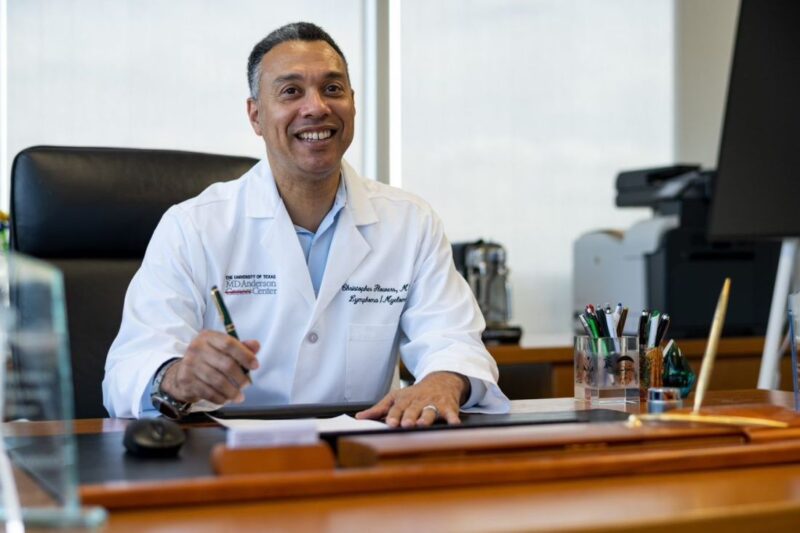
Dr. Christopher R. Flowers, MD, MS, is an internationally recognized physician-scientist and leader in oncology, currently serving as the Division Head of Cancer Medicine and Chair of the Department of Lymphoma/Myeloma at The University of Texas MD Anderson Cancer Center. He joined MD Anderson in 2019 as Chair of the Lymphoma/Myeloma Department and was appointed Division Head of Cancer Medicine in 2023. Dr. Flowers is a leading expert in lymphoma clinical care, epidemiology, and outcomes research, with a focus on developing novel therapeutics for B-cell lymphomas.
He earned his medical degree from Stanford University School of Medicine, where he also completed a master’s degree in medical information sciences. He further trained in internal medicine and medical oncology at the University of Washington and Fred Hutchinson Cancer Research Center, earning a second master’s degree in pharmaceutical outcomes research and policy.
Dr. Flowers has authored over 300 peer-reviewed publications and has received numerous awards, including being named a Fellow of the American Society of Clinical Oncology and a member of the American Society of Clinical Investigators. His research interests include cancer outcomes, informatics, patient-oriented lymphoma research, and the use of computational models to improve individualized cancer care and accelerate drug development.
He has held leadership roles in professional societies, including chairing the American Society of Hematology’s Committee on Diversity, Equity, and Inclusion, and currently serves as an ASH Councillor. Dr. Flowers is also recognized for his commitment to mentoring the next generation of oncology leaders.
Dr. Robert Bruce Montgomery
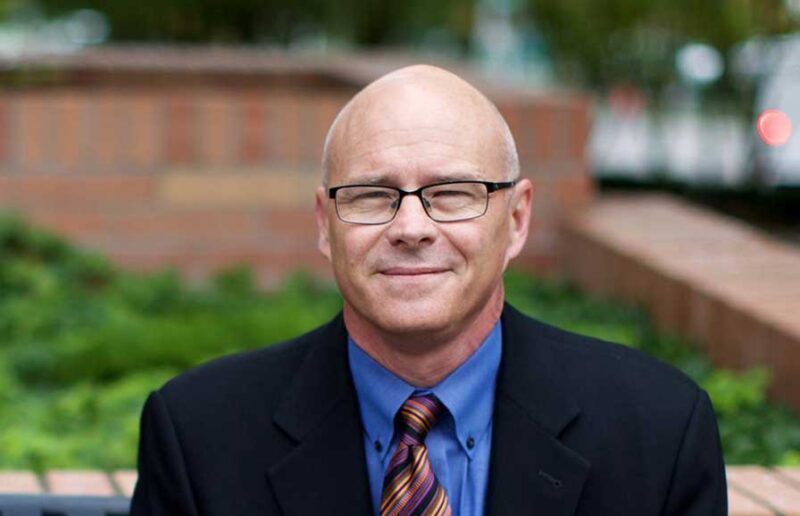
Dr. Robert Bruce Montgomery is a board-certified medical oncologist and clinical director of Genitourinary Oncology at Fred Hutchinson Cancer Center and UW Medical Center in Seattle. He is also a professor of Medicine, Oncology, and Urology at the University of Washington and an affiliate member of the Fred Hutchinson Cancer Research Center. Dr. Montgomery earned his medical degree from Duke University School of Medicine and completed his residency in internal medicine at Brigham and Women’s Hospital, followed by a fellowship in hematology-oncology at the University of Washington/Fred Hutchinson Cancer Center.
Dr. Montgomery specializes in genitourinary cancers, including prostate, bladder, and testicular cancers. He is recognized for his compassionate patient care, intellectual rigor, and dedication to research. He leads multiple clinical trials focused on improving treatment outcomes for prostate cancer by making cancer cells more sensitive to chemotherapy and hormonal therapy. His research emphasizes translational studies using tissue-based biomarkers to predict therapy responses and enhance clinical care.
Patients and colleagues praise Dr. Montgomery for his thoroughness, empathy, and clear communication. He has been repeatedly named a top doctor by Seattle Met Magazine and Castle Connolly America’s Top Doctors. Dr. Montgomery balances clinical practice with research, aiming to advance therapies and improve quality of life for patients with genitourinary cancers.
Dr. Eun-Sil Shelley
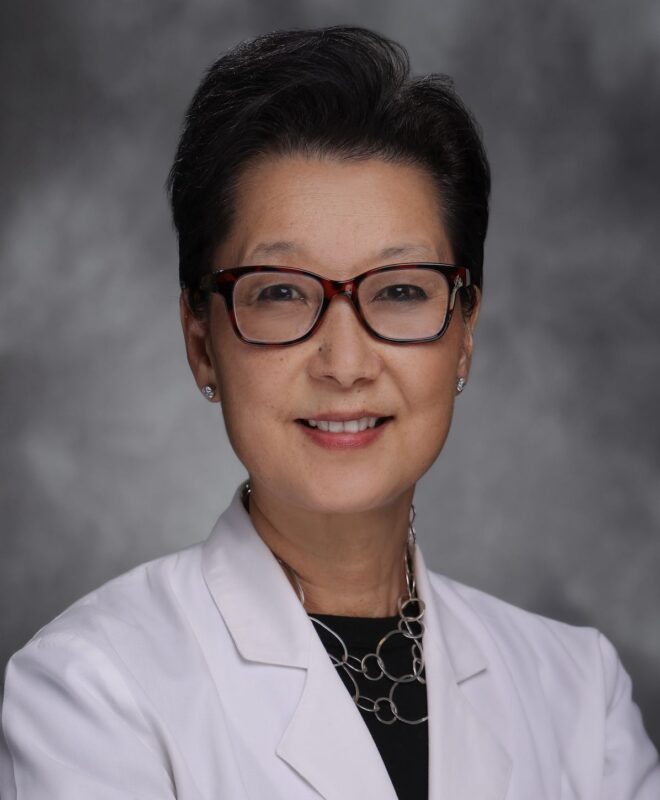
Dr. Eun-Sil Shelley Hwang is a renowned breast cancer surgical oncologist and researcher at the Duke Cancer Institute, where she holds the Mary and Deryl Hart Distinguished Professorship of Surgery. She is Duke’s first female chief of breast surgery and a leading expert on early-stage breast cancer, particularly ductal carcinoma in situ (DCIS), a non-invasive form of breast cancer. Dr. Hwang earned her M.D. from UCLA and an M.P.H. from UC Berkeley, combining clinical expertise with public health perspectives.
Her pioneering work challenges the traditional aggressive treatment of DCIS, advocating for more personalized approaches. About a decade ago, she proposed that some women with low-risk DCIS might safely avoid surgery and instead be closely monitored with regular mammograms. To test this, she led the first U.S.-based clinical trial comparing surgery to active surveillance for DCIS. Early results published in 2024 showed no significant difference in cancer progression between the groups, suggesting surgery may be unnecessary for many patients with low-risk DCIS. This research has sparked international discussion about reducing overtreatment and improving quality of life for breast cancer patients.
Dr. Hwang’s contributions earned her a place on TIME magazine’s 2016 list of the 100 Most Influential People. She also serves on national committees shaping breast cancer screening and treatment guidelines. Known for her empathy and patient-centered care, Dr. Hwang continues to lead research aimed at refining breast cancer treatment to balance effectiveness with minimizing harm.
What Makes TIME100 Health 2025 Unique This Year?
The 2025 TIME100 Health list recognizes the 100 most influential individuals shaping the future of global health amid a rapidly evolving landscape. Released on May 8, 2025, this annual list highlights leaders across diverse fields-scientists, doctors, advocates, educators, policymakers, and innovators-who are advancing care, driving innovation, and transforming lives worldwide.
This year’s list reflects a unique moment in global health, marked by upheaval and rapid change. TIME editors note that the 2025 cohort “looks a bit different,” featuring a broad spectrum of voices addressing critical health challenges from pandemic preparedness to health equity and cutting-edge medical technologies. The honorees include prominent figures such as WHO Director-General Tedros Adhanom Ghebreyesus, philanthropist Melinda French Gates, CEOs of major pharmaceutical companies like Novartis’s Vas Narasimhan and Eli Lilly’s David Ricks, and influential advocates including Princess of Wales Kate Middleton and actor-activists Seth Rogen and Lauren Miller Rogen.
The list also celebrates leaders in scientific research and healthcare innovation, such as Dr. Marty Makary, U.S. FDA Commissioner, and Dr. Sumbul Desai, Apple’s Vice President of Health, who are shaping policy and integrating technology with medicine. Others like Dr. Vinod Balachandran, a surgical oncologist at Memorial Sloan Kettering, represent the cutting edge of cancer treatment innovation.
To honor these leaders, TIME will host the TIME100 Impact Dinner: Leaders Shaping the Future of Health on May 13, 2025, in New York City. The event will spotlight conversations on healthcare innovation and feature appearances by notable figures including CNN’s Sara Sidner, NFL player and entrepreneur Damar Hamlin, and global health experts like Dr. Tahmeed Ahmed.
The 2025 TIME100 Health list underscores the power of collaboration across disciplines and sectors to tackle pressing health issues, improve patient outcomes, and build a more equitable and resilient global health system. It serves as a roadmap to the future of health, spotlighting those whose work is making a lasting impact on millions of lives worldwide.
Is TIME the Only Organization with a List Recognizing Healthcare Leaders?
Besides TIME’s well-known TIME100 Health list, several other organizations and media outlets also compile influential lists recognizing leaders shaping the future of health and healthcare globally:
Digital Defynd’s “50 Famous Healthcare Leaders in the World (2025)” highlights top figures across healthcare policy, research, management, and philanthropy. It includes global health leaders like Dr. Tedros Adhanom Ghebreyesus (WHO Director-General), Dr. Anthony Fauci (NIAID Director), and pharmaceutical CEOs such as Dr. Albert Bourla of Pfizer and Dr. Paul Stoffels formerly of Johnson & Johnson. These leaders are recognized for their impact on public health crises, vaccine development, and health equity initiatives.
Becker’s Hospital Review annually lists “Great Leaders in Healthcare,” showcasing executives who lead major health systems and medical groups, such as Robert Allen of Intermountain Health and Dr. Maria Ansari of The Permanente Federation. These leaders are noted for innovations in healthcare delivery, operational efficiency, and improving patient outcomes across large populations.
Other prestigious recognitions come from professional societies, research institutions, and industry groups that honor scientists, clinicians, and innovators advancing medicine, technology, and health policy.
While TIME’s list is notable for its broad cultural reach and diverse honorees-including public figures, advocates, and corporate leaders-these other compilations focus more specifically on healthcare leadership, scientific achievement, and system-level impact. Together, they provide a comprehensive view of the individuals driving progress in global health, from frontline clinicians and researchers to policymakers and technology pioneers.
You Can Also Read Oncologist Near Me – Eric Small: Prominent Prostate Cancer Specialist by Oncodaily
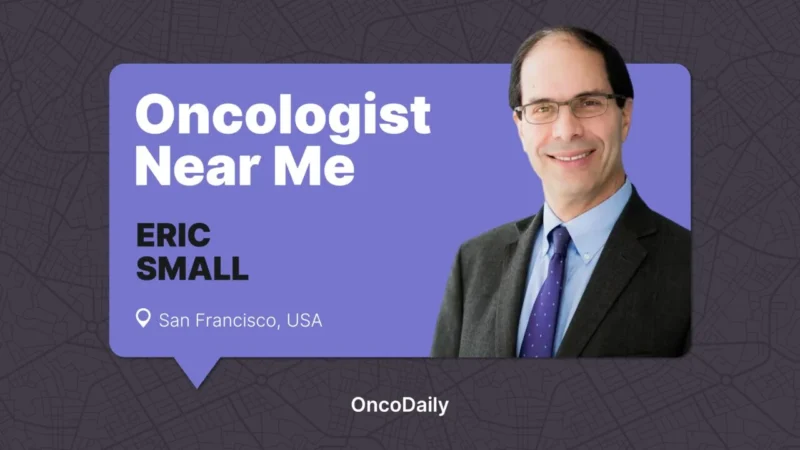
You Can Also Watch Empowering Oncologists: How Mentorship Shapes the Future of Academic Oncology? by Oncodaily
Written by Aharon Tsaturyan MD
FAQ
What is Dr. Andrea Cercek best known for in cancer treatment?
She is best known for leading clinical trials that showed complete remission in mismatch repair-deficient rectal cancer patients using immunotherapy (dostarlimab), allowing some patients to avoid surgery and chemotherapy.
What breakthrough has Dr. Vinod Balachandran made in pancreatic cancer?
He developed a personalized mRNA vaccine for pancreatic cancer that has shown strong and durable immune responses, with some patients remaining cancer-free for over three years after treatment.
What impact did Dr. Karen E. Knudsen have as CEO of the American Cancer Society?
She expanded research funding, improved patient support services, and promoted health equity, significantly transforming the organization’s mission and reach.
What is Dr. Dawn L. Hershman’s main area of research?
She is a leader in breast cancer care delivery, focusing on improving treatment adherence, reducing disparities, and enhancing survivorship for breast cancer patients.
What is Dr. Christopher R. Flowers recognized for in oncology?
He specializes in genitourinary cancers, particularly prostate, bladder, and testicular cancers, and leads clinical trials to improve treatment outcomes.
What is Dr. Shelley Hwang’s pioneering contribution to breast cancer care?
She led research suggesting that some women with low-risk DCIS (early-stage breast cancer) may safely avoid surgery and be managed with active surveillance.
What is Dr. Daniel Nadler’s approach to treating gastrointestinal cancers?
He uses precision medicine, tailoring therapies to the genetic and molecular profiles of individual gastrointestinal cancers to improve patient outcomes.
What cancers does Dr. Robert Montgomery specialize in?
He specializes in genitourinary cancers, particularly prostate, bladder, and testicular cancers, and leads clinical trials to improve treatment outcomes.
-
Challenging the Status Quo in Colorectal Cancer 2024
December 6-8, 2024
-
ESMO 2024 Congress
September 13-17, 2024
-
ASCO Annual Meeting
May 30 - June 4, 2024
-
Yvonne Award 2024
May 31, 2024
-
OncoThon 2024, Online
Feb. 15, 2024
-
Global Summit on War & Cancer 2023, Online
Dec. 14-16, 2023
